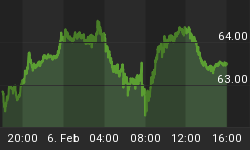Today's Wall Street Journal has a short piece by American Interest editor Walter Russell Mead on how November's election changed things for California, Illinois, and New York -- and for the national parties that have to manage those states' coming bankruptcy:
Walter Russell Mead on the political consequences of massive state debts
New York, California and Illinois look more like Greece to their bondholders every day. Since the November elections, investors have been dumping their bonds, and hedge funds are betting against them, perhaps realizing that a Republican House is not going to offer generous, condition free bailouts...
Back before the midterms, investors were justified in thinking that Democratic majorities in Congress would rally behind a Democratic president seeking to save the top Democratic states from a financial meltdown. (Much of last year's "stimulus" actually consisted of emergency cash transfers to strapped states in order to prevent mass layoffs and service cuts.) Now it is much less clear where the states stand and what kind of help will be available. Uncertainty equals risk for bond investors: the White House and the Congress need to plan now to deal with the possible crisis.
A sudden storm in the muni markets will not be fun for Republicans in office. It's hard to see the Tea Party forgiving legislators who plump for a vast federal bailout of the big blue states . . . [and] it's hard to see voters forgiving a Congress that doesn't protect the country from a massive financial breakdown.
But if Republicans will be damned if they do and damned if they don't, Democrats will just be damned. The prospect of a blue state fiscal crisis is an uncomfortable and threatening one for the GOP; it spells potential catastrophe for the Democrats. The bankruptcy of the big blue states would symbolize the bankruptcy of Democratic party policies to wide swathes of the voting public. Tensions within the Democratic Party would explode: unionized public sector workers would simply not be able to emerge from this kind of crisis without savage layoffs and agonizing cuts in their pay, benefits and pension packages. All the promises (mostly) Democratic politicians have made to them over decades will be exposed for the hollow frauds they were...
The fiscal meltdown of the big blue states, if financial Armageddon actually arrives, will be the biggest domestic crisis for the American people since the Depression, and the biggest crisis for the Democratic Party since the Civil War...
Let's hope a shell shocked White House, a triumphant GOP and an overburdened Federal Reserve are devoting some time to thinking this through in advance. Once a long threatening crisis actually starts, it is much too late to plan.
Some thoughts:
- California, Illinois, New York and several other states were always headed for functional bankruptcy -- the numbers just don't work and the people in charge aren't doing anything about it. The only question was whether their bankruptcy would take the form of muni bond default and mass layoffs, or a federal bailout that created zombie states to go with our zombie banks.
- To restate Mead's point: With the Democrats in charge, a bailout was pretty much guaranteed. No way would that party let its biggest electoral strongholds lay off hundreds of thousands of public employees. But a divided government has a more mixed set of incentives. A bunch of blue states defaulting on their bonds and cutting back their public sectors would be painful for Republicans but disastrous for Democrats. So the Republicans might decide it's worth it.
- A default would send the financial markets back into chaos (remember that muni bonds make up the "risk free" part of a lot of conservative portfolios). A bailout would shift the crisis from the states to the dollar, maybe causing foreign investors to finally catch on to the Ponzi scheme we've been running.
- And that's if a few US states go bankrupt more-or-less in isolation. Let them fail at the same time Spain and Portugal are forcing Germany to bail them out, and then who knows? National political considerations might be trumped by global fears, leading to...a headache for anyone trying to follow this thread much further. For now it's enough to know that state finances will be headline news in the coming year.















